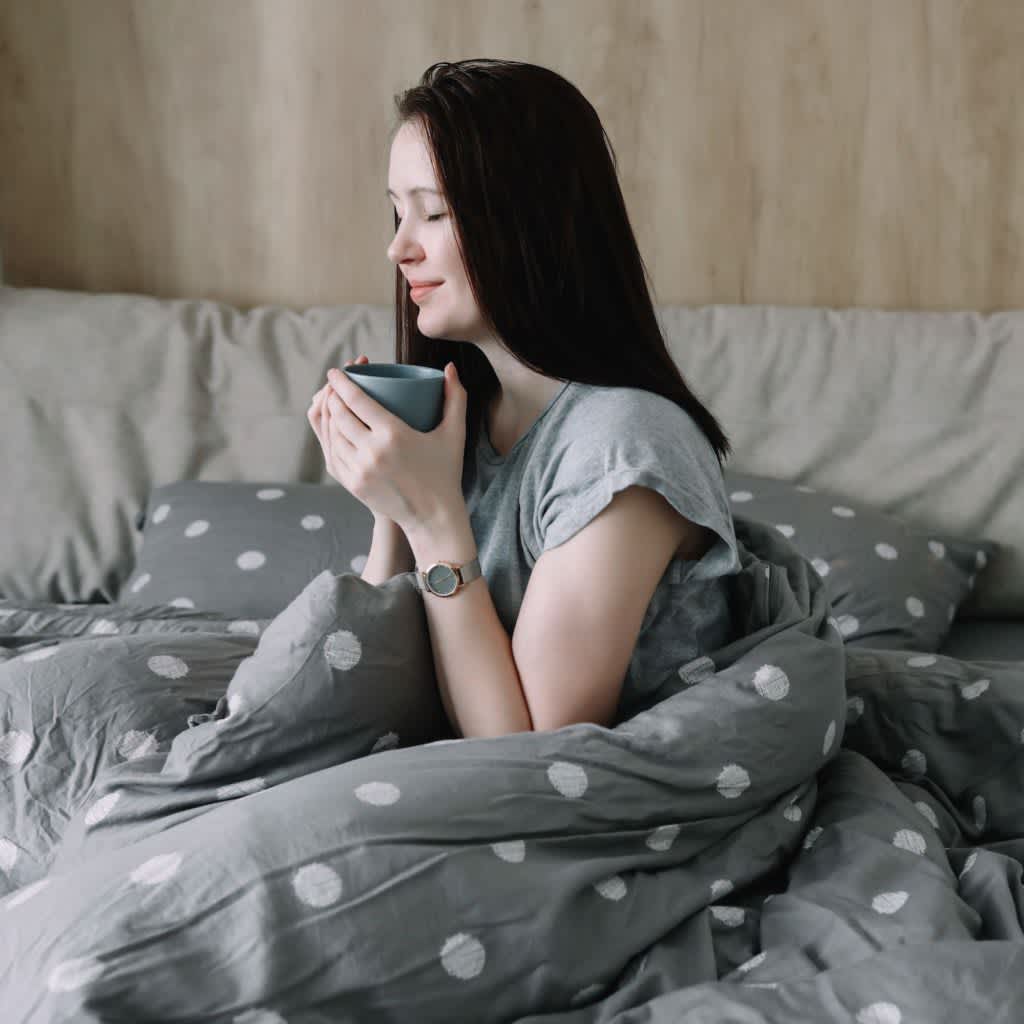Chances are, you spend time regularly thinking about what you eat, and how much you eat. But how much attention do you pay to when you eat? Life seems to only get busier, and daily schedules more hectic. It’s easy, with all that’s going on, to skip out on meals during the day, or push back dinnertime to later in the evening. The result? More of your daily food intake happens later in the day, at night and close to bedtime. But eating too much in the evenings may have a negative impact on the quality of your sleep.
Is It Bad to Eat Before Bed?
According to the results of a new study, the timing of food intake may have a significant effect on sleep patterns. Eating more in the evening hours, near to bedtime, may result in disruptions to healthy sleep patterns. And women may be especially vulnerable to these food-related sleep disruptions.
Scientists at Brazil’s Universidade Federal de São Paulo studied the relationship between food intake and sleep patterns in a group of healthy young adult men and women. They found that eating more heavily at night was associated with deterioration to several measurements of sleep quality. They also found that women were more vulnerable to the negative effects of nighttime eating on sleep.
The study included 52 adults ages 19-45. All were healthy nonsmokers, not obese, free of sleep disorders, and all had what researchers considered to be regular sleep schedules. The study participants had their sleep monitored overnight in a laboratory setting. When not in the sleep lab, participants went about their normal daily lives. They were instructed not to engage in any additional exercise beyond their normal routine. They were also asked to abstain from alcohol and to avoid tea and coffee in the evening. Researchers asked participants not to take naps.
To assess food intake, researchers had participants keep detailed food diaries on 3 non-consecutive days. They were asked to provide as much information as possible about what foods they consumed and when, including portion sizes, timing, and the content of the meals they prepared or purchased.
The scientists found that men’s and women’s sleep patterns were largely similar, although men spent more time in stage 1 sleep—the lightest sleep stage—than women. They analyzed food intake in relation to several measurements of sleep quality, including sleep efficiency, sleep latency (the time it takes to fall asleep), the amount of time spent in REM and other sleep stages, and the likelihood of waking after initially falling asleep. Researchers found that nighttime eating disrupted sleep patterns, and did so differently—and more significantly—in women than in men:
- Men who consumed higher amounts of fat in the evening hours had lower sleep efficiency scores, and spent less time in REM sleep. Sleep efficiency is a calculated number that reflects the amount of time actually sleeping relative to the total amount of time spent in bed. A lower sleep efficiency score indicates a person has spent more time in bed but not asleep than a person with a higher sleep efficiency score.
- Women’s sleep patterns experienced disruption linked to both evening fat consumption and overall calorie consumption in the evenings. Higher fat intake during the evening was associated in women with lower sleep efficiency, taking longer to fall asleep and taking longer to reach REM sleep, as well as a greater likelihood of waking after falling asleep. Greater calorie intake was linked in women with taking longer to fall asleep and to lower sleep efficiency.
There’s been a lot of scientific attention paid to the changes that sleep can affect upon eating habits, hunger, cravings and weight. Poor and insufficient sleep alter hormone levels in the body that help to regulate hunger and satiety. Lack of sleep can make us eat more during our waking hours, and also drive us to crave less healthful foods. Over time, poor sleep is linked to greater risks for obesity and metabolic disorders such as diabetes. Sleeping well is one important way to protect against metabolic dysfunction and to help maintain a health weight.
But far less attention has been paid to the effects of the timing of eating on sleep, and how eating at night—both the volume of food and the type of food consumed—may influence sleep quality and quantity. This new research provides some detailed preliminary information suggesting that nighttime eating can significantly interfere with several mechanisms of sleep, and impede sleep quality. But it’s important that we see additional research in this area.
The gender differences seen here also deserve more attention in follow-up research. We know that men and women appear to have different risks both for sleep disorders and the health consequences that may result from them. The effects of nighttime eating on sleep may be another area where men and women face different hazards.
When you’re considering the food choices you make in order to support your health, keep in mind that you’re also influencing how well you sleep—and that it’s not just what you eat, but when, that may matter.
References
The Sleep Doctor Forum: Real Experiences, Real Connections
Continue the discussion on the Sleep Doctor Forum. Connect with experts and fellow forum members on CPAP, sleep apnea, and all things sleep. A priceless resource that’s free to join.








































